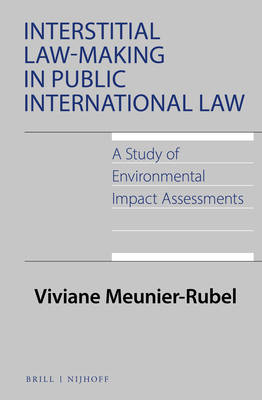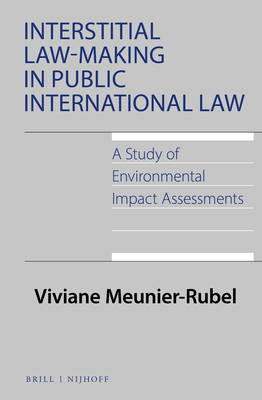
- Afhalen na 1 uur in een winkel met voorraad
- Gratis thuislevering in België vanaf € 30
- Ruim aanbod met 7 miljoen producten
- Afhalen na 1 uur in een winkel met voorraad
- Gratis thuislevering in België vanaf € 30
- Ruim aanbod met 7 miljoen producten
Interstitial Law-Making in Public International Law: A Study of Environmental Impact Assessments
A Study of Environmental Impact Assessments
Viviane Meunier-Rubel
€ 273,45
+ 546 punten
Omschrijving
Environmental Impact Assessment (EIA) requirements are quasi-universal. Praised as the core of the international legal response to ensure environmental protection, this procedure is an information tool for better public decision-making, which can contribute to empowering individuals and civic groups. Based on the historical background of the relevant norms and on case studies, Interstitial Law-Making in International Law: A Study of Environmental Impact Assessments verifies whether the role of procedure in secreting substantive law may be fulfilled in the distinctive legal system of public international law, while appraising how EIA requirements have been conceived and implemented as regards encouraging all international actors to behave in an environmentally conscious way, in a world of heterogeneous political regimes.
This book is based on the author's award winning doctoral dissertation which received the Yale Law School's Ambrose Gherini Prize for best paper in the field of international law (2018).
This book is based on the author's award winning doctoral dissertation which received the Yale Law School's Ambrose Gherini Prize for best paper in the field of international law (2018).
Specificaties
Betrokkenen
- Auteur(s):
- Uitgeverij:
Inhoud
- Aantal bladzijden:
- 488
- Taal:
- Engels
- Reeks:
- Reeksnummer:
- nr. 17
Eigenschappen
- Productcode (EAN):
- 9789004467576
- Verschijningsdatum:
- 8/09/2022
- Uitvoering:
- Hardcover
- Formaat:
- Genaaid
- Afmetingen:
- 156 mm x 234 mm
- Gewicht:
- 771 g

Alleen bij Standaard Boekhandel
+ 546 punten op je klantenkaart van Standaard Boekhandel
Beoordelingen
We publiceren alleen reviews die voldoen aan de voorwaarden voor reviews. Bekijk onze voorwaarden voor reviews.










